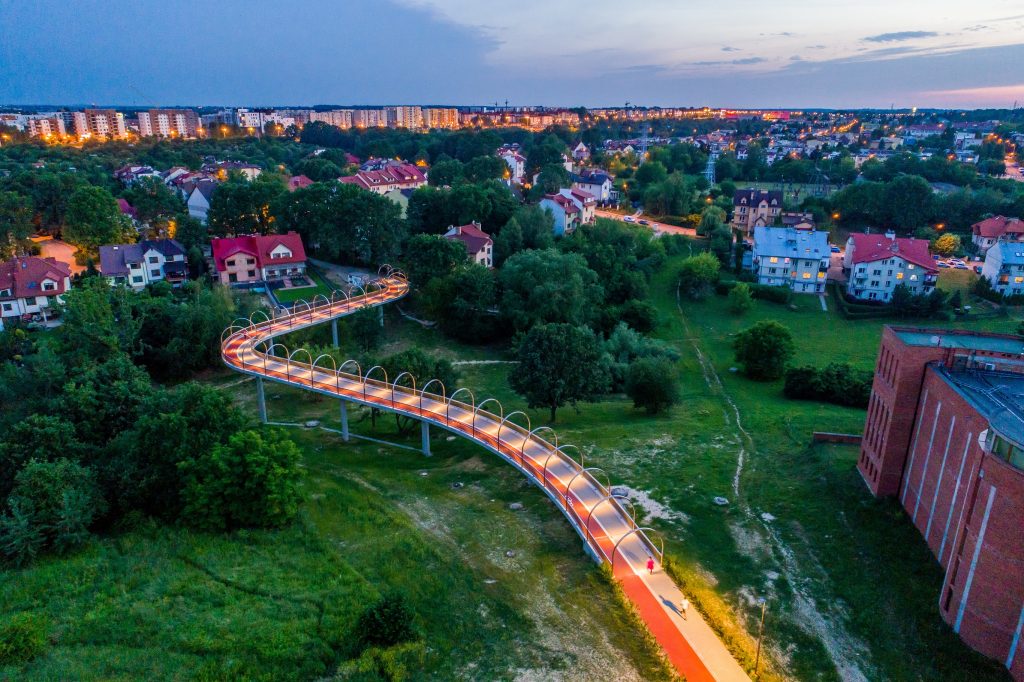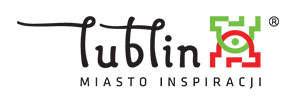The development priorities of the Lublin Municipality in terms of implementing the smart city concept concern, to a large extent, aspects related to urban mobility. Apart from large investment projects in the form of modernization of the public transport system, extension of the accompanying infrastructure or purchase of modern vehicles complying with the current emission standards, the Lublin Municipality has also gained experience through participation in innovative projects of international scope, being a perfect partner for testing new solutions.

EIT Urban Mobility
As a member of the community of the European Institute of Innovation and Technology for Urban Mobility (EIT Urban Mobility), Lublin Municipality had the opportunity to implement several projects of an international character. EIT Urban Mobility uses EU funds to promote educational, industrial and R&D projects. The budget allocated to these activities amounts to approximately EUR 1.6 billion, making it one of the largest publicly funded urban transport initiatives in the world.
AI-TraWELL Project
One of the activities carried out by the Lublin Municipality within the EIT Urban Mobility is the “AI-TraWELL” project, whose main objective is to develop a prototype tool based on artificial intelligence (AI), which, in the form of an interactive chat-bot, will recommend personalized travel routes, taking into account the diverse needs and preferences of users.
The AI-TraWELL prototype application is being developed to combine the needs and preferences of users with real information enriched with forecasts on the available means of transport. The AI-TraWELL application is distinguished by the fact that it aggregates all available means of transport in the city, taking into account not only statistical data, but also subjective data defined by the application user, enabling precise delivery of personalized information.
In order for the solution to make use of these types of data, it was necessary to thoroughly investigate the factors that influence a user’s choice of a particular mode of transport and to examine how general travel preferences are shaped by members of the public. In the course of the two-year project, one of the activities was extensive social research carried out in four European cities (Lublin, Munich, Copenhagen and Istanbul). The research used diverse research methods, ranging from survey questionnaires to specialised tools developed by Gehl Architects (a world leader in urban design). One of tool was the Maptionnare – empirical study. It is a research method characterised by the centralised collection of data – qualitative, quantitative and spatial – through active maps. The addition of a spatial aspect to the research facilitated an understanding of people’s preferences in everyday travel and made it possible to highlight key factors that influence the choice of specific travel routes. A complementary element to Maptionnare was the Public Life Survey, in which researchers carried out observational studies within the same areas to analyse traffic flows at specific points and to verify the type of activities that city residents engage in in the area.
In 2020, a prototype application was developed for the city of Lublin and Munich. As part of the work carried out in 2021, on the basis of extended social research, it was possible to develop a tool for combining subjective data with objective data, which enables chat-bot learning using algorithms. At the end of 2021, extended versions of documents will be developed in the form of strategies for commercialisation and exploitation of the AI-TraWELL solution in the future.
The project is carried out by an international consortium bringing together representatives from academia, technology companies and municipalities. The consortium consists of the following entities: University College London (ranked among the world’s top universities), Fraunhofer Society for the Advancement of Applied Research, Münchner Verkehrs und Tarifverbund GmbH (MVV), Achmea, TomTom, ISBAK Istanbul IT and Smart City Technologies Inc., Open & Agile Smart Cities, Gehl Architects, Eindhoven University of Technology, and the cities of Lublin, Copenhagen, Munich and Istanbul.
CITYTHON Project
The “CITYTHON” is another project implemented within the EIT Urban Mobility community by the Lublin Municipality. The main objective of the project was to organise an urban hackathon on the topic of broadly understood urban mobility. The ambition of the project is also to create a reference event in Europe to attract the best talents and to create innovative mobility solutions.
The first edition of the project took place in 2020 in three European cities: Amsterdam, Barcelona and Lublin. Each city prepared three challenges for the participants of the event. In the case of the city of Lublin, the groups participating in the hackathon worked on solutions related to: moving car traffic out of the city centre, accessibility of urban space, public transport and mobile services with particular attention to the needs of disabled and elderly people. The final challenge was related to optimise bus routes taking into account citizens’ positions. Within each challenge, the best team was awarded a cash prize. The winners also received the opportunity to present their solution at the Smart City Expo 2020 Congress in Barcelona.
The success of the first edition of the project has translated into its continuation in 2021. In addition to the cities participating in the event in 2020 (Lublin and Barcelona), the cities of Hamburg, Bilbao, and Eindhoven have also joined. The idea of the hackathon itself and the rules have not changed significantly.
In the case of the city of Lublin, the following challenges have been selected for 2021: Green Connection – developing a concept to connect green areas into a coherent recreational and natural system, Green Ring Road – developing a green network (ring road) of the city and Sustainable Transport Network – multimodal transport hub as a way to optimise travel and reduce its time “door to door”.
The two editions of the CITYTHON project have shown the validity of such initiatives and the high demand of cities for creative prototype solutions.
Multistage Design Thinking Project Support Project
Multistage Design Thinking Project Support” was another project implemented by Lublin Municipality within the EIT Urban Mobility. Its aim was to create more sustainable urban mobility solutions by training public officials responsible for this thematic area using the design thinking method. Design thinking as a set of cognitive and practical processes is widely used and popular among start-ups, creative industries and private companies due to its effectiveness in solving complex problems whose solutions go beyond the application of technical knowledge. The workshop model adopted in the project was based on the D7 methodology developed by Prof. Ezri Tarazi, which assumes that any innovative project must be designed in a comprehensive way, taking into account structured ways of defining the needs and elements to which the project is supposed to respond. In this method, participants conduct in-depth research on the target audience of the project and visualise the solution, starting with visualisation and ending with building a business model.
Adapting the design thinking method at city administration level, especially in the areas of traffic management and public transport, has allowed staff to bring together diverse approaches to solving today’s and tomorrow’s urban mobility problems, enabling the creation of effective and user-oriented solutions.
An international consortium consisting of the following entities worked for the success of the project: Technion – Israel Institute of Technology, UnternehmerTUM GmbH, Zone Cluster Ltd. and the cities of Munich and Lublin.
Project MOVE IT like Lublin – a Chisinau sustainable public transport sustainable development initiative
The aim of this project is to reform the public transport management system in the city of Chisinau by increasing the transparency of public transport using modern IT and technological solutions. The project also aims to build the competences of human resources in the transport sector in Chisinau.
Due to numerous implemented smart city projects (e.g. Traffic Management System – ITS, Public Transport Management System) and a radical change in the functioning of public transport, which is characterised by modern low-emission rolling stock together with diversified and rich accompanying infrastructure (e.g. Electronic Ticket System, P&R infrastructure). Lublin Commune, as a partner in the project, acts as a substantive support. This support consists in the transfer of experience in the form of training and consultations in the field of implementing modern transport solutions.

